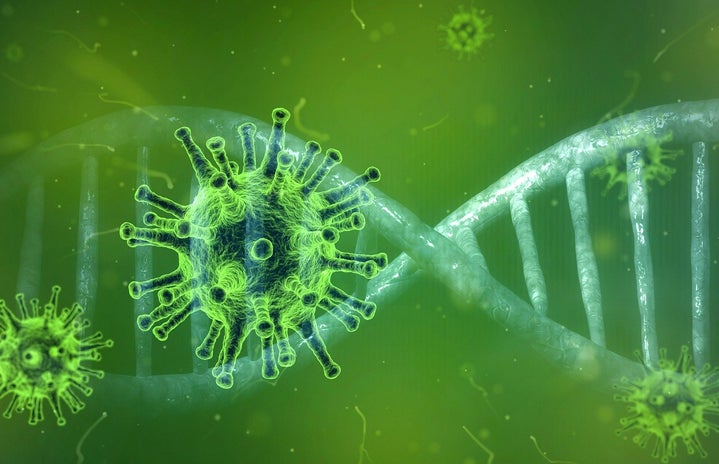The UK is officially the first country in the world to administer the first dose of a vaccine against COVID-19. Developed by Pfizer-BioNTech, this vaccine has an effectiveness rate of 95% and has been tested on over 43,000 people. Here’s all you need to know:
Let’s start from the top: how does a vaccine work? A vaccine contains a weakened portion of an organism which then causes our body to produce antibodies against that organism. In other words, it triggers an immune response. We will build up enough antibodies so that when we’re exposed, in this case, to coronavirus, our body has built-in tools to protect us. There are different types of vaccines, and the one designed by Pfizer and BioNTech is an mRNA vaccine. Scientists synthetically make messenger RNA (mRNA), which is some sort of code that then teaches our cells to develop a spike protein present in the COVID-19 cells. Don’t worry though, it will not alter your DNA.
Normally a vaccine takes around 10 years to develop, but due to its urgent necessity, this one only took 8 months! As a result, a lot of people have shown concern regarding this short amount of time. And the fact is that this has a simple explanation. Whilst other vaccines have been designed intermittently, the high demand for a COVID-19 vaccine has made scientists not want to waste any time. At the end of the day, it’s important to note that this vaccine has undergone the same testing and approval process as any other.
Now, let’s talk about safety. After news broke about how two people had had an allergic reaction to the covid vaccine, people started to seriously question its safety. However, if we expect it to have no adverse effects, then no drug is “safe”. Every medicine available at your local pharmacy has some unwanted effects in some percentage of the population. What is important here is that the balance between the benefits and negative effects weighs in favour of the positives.
Although the vaccination process has already started, most vaccinations will be taking place in 2021. The first people who are going to get this vaccine are care home residents and their carers, followed by people over 80 and front line workers. Next in line are people over 75, and behind them come people who are extremely vulnerable. Because it’s a free service provided by the NHS, you won’t be able to skip the queue even if you offer to pay. If you’ve already had COVID-19 you will still need to be vaccinated, since the length of immunity after you’ve had the virus is unknown. Another characteristic of this vaccine is that it is administered in two doses 21 days apart, giving full immunity after the second dose.
The majority of people, about 50% to 80% of the population, will need to be vaccinated to achieve herd immunity, so that it’s harder to spread to people who cannot get vaccines.
The development of this vaccine is a decisive moment in the history of this pandemic. Scientists have worked tirelessly to achieve this in such a short amount of time, but it is important to remember that it still is up to all of us as a community to continue to follow government regulations and safety measures!



